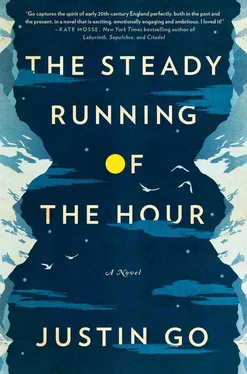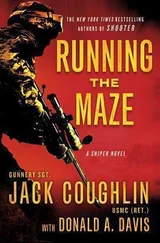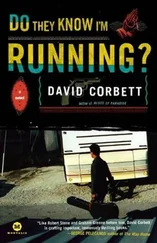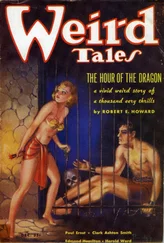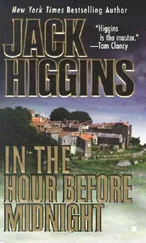We started putting the papers back in the boxes and replacing the lids.
— Listen, he said. You never told me anything about grad school, and now you’re taking off to Europe in a huff. What’s going on?
I looked at my father. He was up on the ladder, putting the boxes back under the rafters. It was afternoon but he was still wearing his pajama pants.
— Everything’s fine, I said.

At least he hadn’t asked about my mother. It had been almost three years and whenever my father sensed something was wrong, he always assumed it was her. And she was the last thing I wanted to be reminded of. It had taken a long time to separate her life from her death so that I could think of the first without having to think of the second. Finally I learned to let the small and simple memories float to the surface, as they did sometimes, and I no longer tried to push them down.
So I let myself remember. My mother dropping me off at summer school early in the morning. My mother giving me hardcover books wrapped in gold paper for Christmas, books that I’d pretend I’d never read before. My mother meeting my high school girlfriend and worrying what she ought to wear to dinner, then both of them being too polite and shy as they talked across the table.
There was no use for the other memories. My mother at the hospital, the trays of food that sat uneaten for hours, both of us looking out the window. Before she was sick we used to talk about anything, but in the hospital I never knew what to say. I’d sit by the window overlooking Divisadero Street and talk as long as I could, stopping when the nurse came to empty the bag attached to my mother’s body.
The nurse would leave and my mother would turn to me.
— You don’t need to stop every time she comes in. Just keep talking.
— About what?
— Anything at all. I just like to hear you.
I’d talk about the new apartment where I was living; about a trip I’d taken across the Mojave Desert during winter break. My mother’s eyes would close as I spoke, but if I stopped they would spring open, green and bright. So I’d go on with my story. And my mother would turn her head on her pillow and shut her eyes again.
In the hospital there was only one thing that made her smile, a simple phrase she spoke like a confession.
You’re the only one for me , my mother would say.
Because I was her only child and maybe the only thing that would bind her to this world once she was gone. I don’t know what dreams she had for me. She never told me. When I was younger she imagined I would make a good doctor, but in the end she hated her doctors and might have changed her mind.
The two of us were night and day. My mother had no use for the arts or history, and she believed it was easiest to be happy in a practical profession, which was probably true. She had spent her whole life in California and loved it as much as her own mother had hated it. My mother wasn’t interested in cold places. She didn’t care about stone castles or distant battlefields or cracked oil paintings hung in old palaces. She found it quaint that I loved these things without ever having seen them.
And she almost never talked about my grandmother. I can only remember one time. It was spring break and we were driving up Highway 1 to visit my mother’s friend in Mendocino. Suddenly my mother felt sick from the winding road. This was two months before we knew what was wrong with her. The sun had just set and my mother pulled over at a gas station and went inside to use the bathroom. I got out and took a picture of the lit-up Texaco sign while I waited. When she came back she looked tired.
— Tris, do you mind driving?
I started the car and we pulled back onto the road. My mother turned to me.
— How’s school going? Your father said you’re taking an architecture class.
— Yeah, medieval architecture. It’s a good class. We went to Grace Cathedral on Monday. They’ve got a labyrinth on the floor, just like the one at Chartres. They say medieval pilgrims went through it on their knees, it symbolized the path to the Holy City.
My mother turned to me.
— Chartres, she repeated. I haven’t heard that word in years. Charlotte used to talk about it all the time, she’d go on for hours about the stained glass. The round windows, what do you call them—
— Rose windows.
My mother nodded. We drove around a peninsula and we could see the headlights of the cars ahead making yellow tracks all the way up the coast. She looked down at the dark water below.
— You know it was her idea to name you Tristan. I wanted to name you Michael. But Charlotte always loved the name, and she never had a boy of her own—
— Was she much like me?
My mother pulled her seat back and shut her eyes.
— No. She wasn’t like you at all.

My flight for London was leaving early in the morning, but my father insisted on driving me to the airport. I got up before dawn and repacked my bag to make sure I hadn’t forgotten anything. I was taking my old camping backpack, the nylon faded and worn from trips in the Sierra Nevada. I wanted to travel light in case I went anywhere after London.
In the main compartment there was a down sleeping bag that kept me warm in the snow and stuffed down to the size of a loaf of bread. My clothes were rolled up to save space. I took a black hardcover notebook kept dry in a quart-size freezer bag along with my passport. In the lid pocket of the backpack I put an LED headlamp that ran on three small batteries, and a pocket book of London street maps.
My father tapped on the door and came in. He looked at the backpack.
— That’s all you’re bringing? What about a coat?
— It’ll be seventy-five all week. The lows are in the fifties—
— You know your stuff. Let’s go.
We got into the car and by the time we crossed the Bay Bridge the sun was coming up. My father turned down the radio as we merged onto the freeway.
— Did you see Adam yesterday?
I hesitated. — I didn’t know he was back.
— He got back on Friday, he’s just been at Lizzie’s. I told him you were leaving town, he said he’d try to get ahold of you. One day you’ll explain to me how a young guy manages a social life without a cell phone—
— How did you?
My father looked at me and grinned.
— Fair enough. But times have changed. You know how old I was the first time I went to Europe? Twenty-nine, a lot older than you. Seems like you’ve been pining to go since the day you were born. How’s it feel to be finally going?
— A little surreal.
My father nodded.
— Well don’t let it pass you by. You’ve earned a break. Don’t worry too much about the grad school stuff. Just soak it in, you only get one first time over there.
When we reached the airport my father turned in to the international terminal and pulled the car up to the curb. There was a strange expression on his face. He glanced in the rearview mirror and pulled the lever to pop the trunk.
— Hold on, he said. Take a look in the trunk.
— My bag’s in the backseat—
— I know. But have a look in the trunk.
We got out and my father held the trunk open, grinning to himself. Under the lid there was an old brown canvas shoulder bag I hadn’t seen in years.
— You didn’t have time to fix that Nikon, did you?
— No.
— I didn’t think you would. So you were going off to Europe without a camera?
— Yeah.
— You aren’t now.
My father opened the bag and took out the camera. The black finish was worn off the edges of the top and baseplate and you could see the brass showing through, the logo worn but the engraving below still clear. ERNST LEITZ GMBH WETZLAR GERMANY. My father looked through the viewfinder and made a low whistle. He handed the camera to me. It felt heavy in my hand.
Читать дальше
